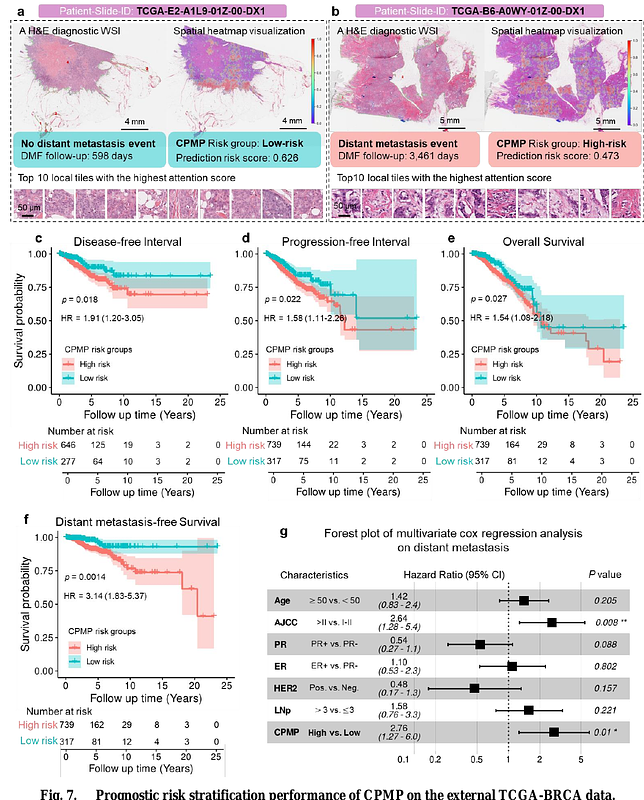AI-driven computational pathology for recurrence risk assessment in early-stage breast cancer

AI-driven computational pathology for recurrence risk assessment in early-stage breast cancer
Yan, C.; Li, L.; Qian, X.; Ou, Y.; Huang, Z.; Ruan, Z.; Xiang, W.; Liu, H.; Liu, J.
AbstractRecurrence associated with poor prognosis is a primary death cause among breast cancer (BC) patients. The genomic MammaPrint (MP) test is designed to stratify risk and evaluate chemotherapy benefits for early-stage HR+/HER2- BC patients. However, it fails to reveal spatial tumor morphology and is limited by high costs. In this study, we establish a Chinese BC MP cohort and develop a weakly supervised agent-attention transformer model, CPMP, to predict MP recurrence risk from annotation-free BC histopathological slides. Our method achieves an average AUROC of 0.824 [range: 0.790-0.852] in predicting MP risk groups. CPMP is further leveraged for spatial and morphological analysis to explore histological patterns related to MP risk groups. It reveals the spatial localization of tumors at the whole-slide level and highlights differences in intercellular interaction patterns associated with MP. CPMP characterizes the diversity in tumor morphology and uncovers MP High-specific, Low-specific, and colocalized morphological phenotypes that differ in quantitative cellular compositions. Prognostic analysis in the external cohort exhibits a significant distant metastasis risk stratification (HR: 3.14, 95% CI: 1.83-5.37, p-value = 0.0014), underscoring the prognostic power of our model. These findings demonstrate the capability of our method in MP risk prediction, offering a flexible supplement to recurrence risk assessment in early-stage BC patients.